Best life-work balance countries in Europe ranked
Life-work balance is an evolving definition, describing how we juggle our personal lives alongside the demands of our careers. Remote has coined the term to describe the increasing trend of people putting life first and work second.
Strong life-work balance extends beyond the ability to work from home. Measuring life-work balance with accuracy considers a number of the most important impacting factors ranging from payment rate to inclusivity. Putting Europe to the test, we conducted an index data analysis to reveal the top countries to live and work across the old continent. Would you consider a move abroad in search of a greater balance between your personal life and career?
The European Life-Work Balance Index assesses focuses on the countries situated in Europe, ranking the quality of life-work balance across each nation. The index considers a variety of vital factors including:
Healthcare
Minimum wage
Maternity leave
Statutory annual leave
Sick pay
Overall happiness levels
Average working hours
LGBTQ+ inclusivity
Which European nations offer the best life-work balance? Let's dive into the data.
Top 10 countries in Europe for life-work balance
Here are the top 10 countries in Europe offering the best life-work balance. These 10 countries achieved the highest scores out of 100 in our index analysis. Click see more to reveal the full list of 30 countries.
| Rank | Country | Capital | Population | Score | Annual leave days | Min. sick pay (% or total) | Paid maternity leave (weeks) | Paid maternity leave (wage %) | Minimum wage (USD/hour) | Healthcare system | Happiness index (out of 10) | Hours worked | LGBTQ Inclusivity |
|---|---|---|---|---|---|---|---|---|---|---|---|---|---|
1 | Luxembourg | Luxembourg | 654,768 | 85.26 | 37 | 100 | 20 | 100 | 14.26 | universal public insurance system | 7.4 | 27.4 | 75 |
2 | Spain | Madrid | 47,519,628 | 78.63 | 36 | 60 | 16 | 100 | 9.02 | universal government-funded | 6.48 | 25.9 | 84 |
3 | France | Paris | 64,756,584 | 77.19 | 36 | 50 | 16 | 95.7 | 11.95 | universal public insurance system | 6.69 | 25.6 | 78 |
4 | Norway | Oslo | 5,474,360 | 74.9 | 35 | 100 | 18 | 96 | - | universal government-funded | 7.37 | 26.9 | 86 |
5 | Denmark | Copenhagen | 5,910,913 | 74.62 | 36 | 100 | 18 | 52 | - | universal government-funded | 7.64 | 25.9 | 86 |
6 | Netherlands | Amsterdam | 17,618,299 | 70.95 | 28 | 70 | 16 | 99 | 11.61 | universal private health insurance system | 7.41 | 26.9 | 85 |
7 | United Kingdom | London | 67,736,802 | 70.22 | 28 | £96.35 per week | 39 | 29.8 | 12.44 | universal government-funded | 6.94 | 25.6 | 82 |
8 | Estonia | Tallinn | 1,322,765 | 70.21 | 39 | 70 | 20 | 100 | 4.21 | universal public insurance system | 6.34 | 25.9 | 59 |
9 | Slovenia | Ljubljana | 2,119,675 | 68.68 | 33 | 80 | 15 | 100 | 7.48 | universal public insurance system | 6.63 | 29.1 | 68 |
10 | Iceland | Reykjavik | 375,318 | 66.01 | 38 | 100 | 17 | 77.9 | - | universal government-funded | 7.56 | 33.6 | 90 |
Top 10 countries in Europe for life-work balance
1. Luxembourg
Overall index score: 85.26
Luxembourg ranks #1 on our life-work balance index. The country performs well across all key metrics, particularly regarding statutory maternity leave (100% of the employee’s wage for 20 weeks) and statutory annual leave (26 days). With a happiness score of 7.4, Luxembourg is also one of the most content nations in Europe.
Famous for being the second-richest country in the world, Luxembourg is an economic powerhouse that is keenly aware of the importance of a good life-work balance. Move here and you’ll experience award-winning wines, unique cuisine (such as gromperekichelcher), and an attitude to work that puts you and your family's needs first.
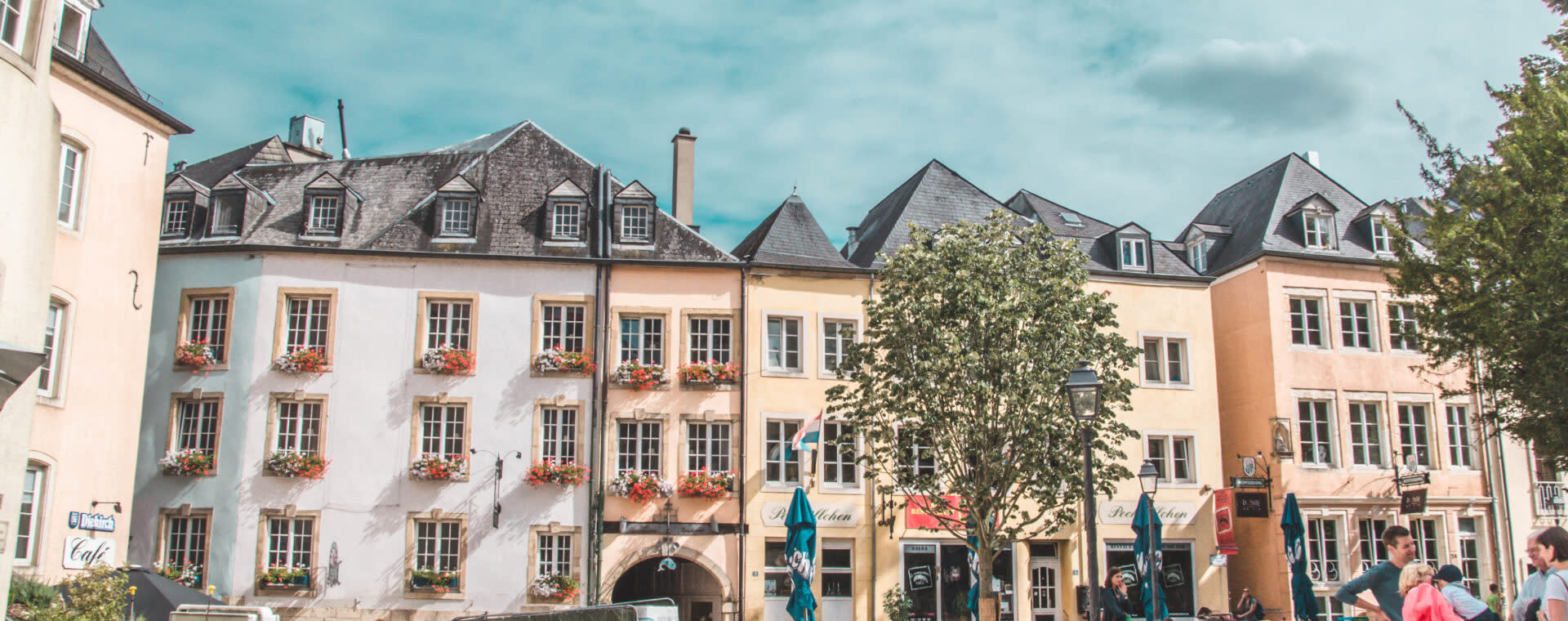
2. Spain
Overall index score: 78.63
Spain has a strong business culture geared towards putting home life before work when it counts. The nation has a universal government-funded healthcare system, as well as a significant minimum wage (the equivalent of $9.02/hr). This is particularly impressive given that Spain has a far larger population compared to other countries in the top 10.
Home of Pablo Picasso, Salvador Dalí, and delightful tapas, Spain is an artful country that rewards the creative spirit. The nation has the world’s 14th largest economy by nominal GDP, as well as booming energy and tourism industries to ply your trade. Madrid also ranked second in our Best Destinations for Remote Work guide, suggesting that second really is the best for Spain!

3. France
Overall index score: 77.19
France is one of the larger European nations to make our top ten. A generous statutory annual leave allowance of 36 days, as well as a high minimum wage, are key factors in this nation's ranking.
In 2017, the French government passed a law known as the right to disconnect. This law requires companies with more than 50 workers to create a charter of good conduct: a document stopping workers from answering emails outside of hours, a strong move for supporting a healthy life-work balance!

4. Norway
Overall index score: 74.90
Norway values a strong life-work balance. The country’s culture is enshrined within its employment laws, and long working weeks are rare across all industries. The country does not have a standard minimum wage like many other European nations. Instead, Norway has a collective agreement among nine key industries that cover 70% of all workers.
With a happiness score of 7.37, Norway has one of the most content populations inside our top 10. The country also has a renowned universal government-funded healthcare system, with health expenditure per head higher than in most other countries.
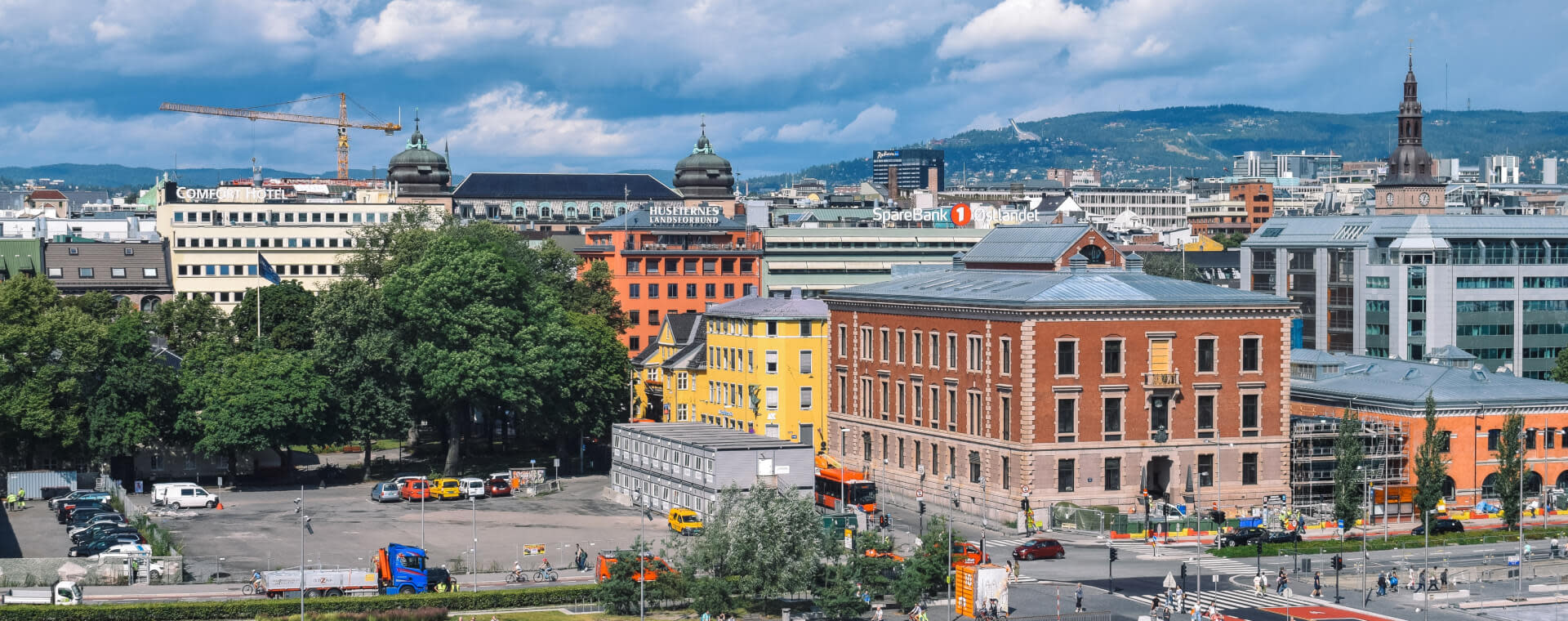
5. Denmark
Overall index score: 74.62
Denmark is the happiest nation in our top 10, with a happiness index score of 7.64. Workers also receive 36 days of statutory annual leave on full pay, as well as 18 weeks of paid maternity leave (52% of base pay).
Life-work balance is a cornerstone of Danish culture. The Scandinavian nation has a high taxation rate that serves to fuel a strong welfare society, benefitting its citizens through free education and healthcare, as well as a smooth public transport system and sprawling recreational facilities.
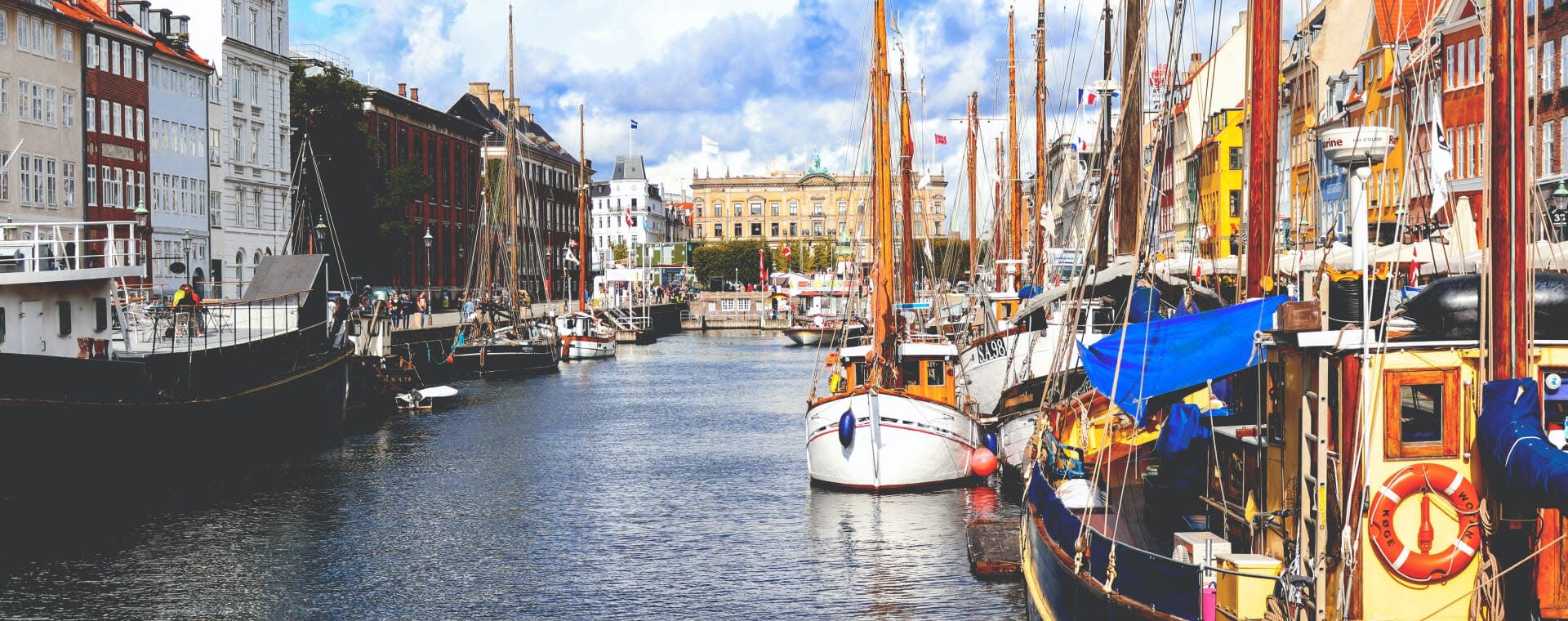
6. Netherlands
Overall index score: 70.95
From Amsterdam to Rotterdam, the Netherlands has a healthy commitment to life-work balance. The working culture is productive yet respectful, with a desirable average work week of 26.9 hours combined with a strong LGBTQ+ inclusivity score.
According to some reports, just 0.4% of Dutch employees report working very long hours – this is a significant indication of a good life-work balance as the worldwide average is 11%. The life-work balance enjoyed by people living in the Netherlands means they can spend more time exploring the country's boundless green space, diverse cities, and tasty bitterballen!

7. United Kingdom
Overall index score: 70.22
The United Kingdom enters the top 10 at position seven after placing 28th in 2022. The UK’s improvement in ranking can partly be attributed to its universal government-funded healthcare system (NHS), long statutory maternity leave period (39 weeks), and strong LGBTQ+ inclusivity score.
The UK offers a mostly good quality of life far beyond the London bubble. England, Scotland, Wales, and Northern Ireland each have an individually strong identity and culture. From rolling countryside and breathtaking coastline to bustling city life, each location is uniquely diverse.

8. Estonia
Overall index score: 70.21
Family is a key focus in Estonia, a culture that is illustrated through its high life-work balance score. Estonia’s 39 days of paid statutory leave is the most of any country in the top 10. Moreover, Estonia provides 20 weeks of statutory maternity leave paid at 100% of an individual's wage.
Estonia is an incredibly spacious country where you’ll always be a stone's throw from a beautiful forest or lake (Lahemaa is the country's largest and oldest national park). Traditional Estonian cuisine is perfect for lovers of comfort food! Sauerkraut and potato salad (Eesti Kartulisalat) are national staples. Estonia is also one of the world's most advanced digital societies, with projects such as ‘e-Estonia’ meaning access to the internet is considered a fundamental right.
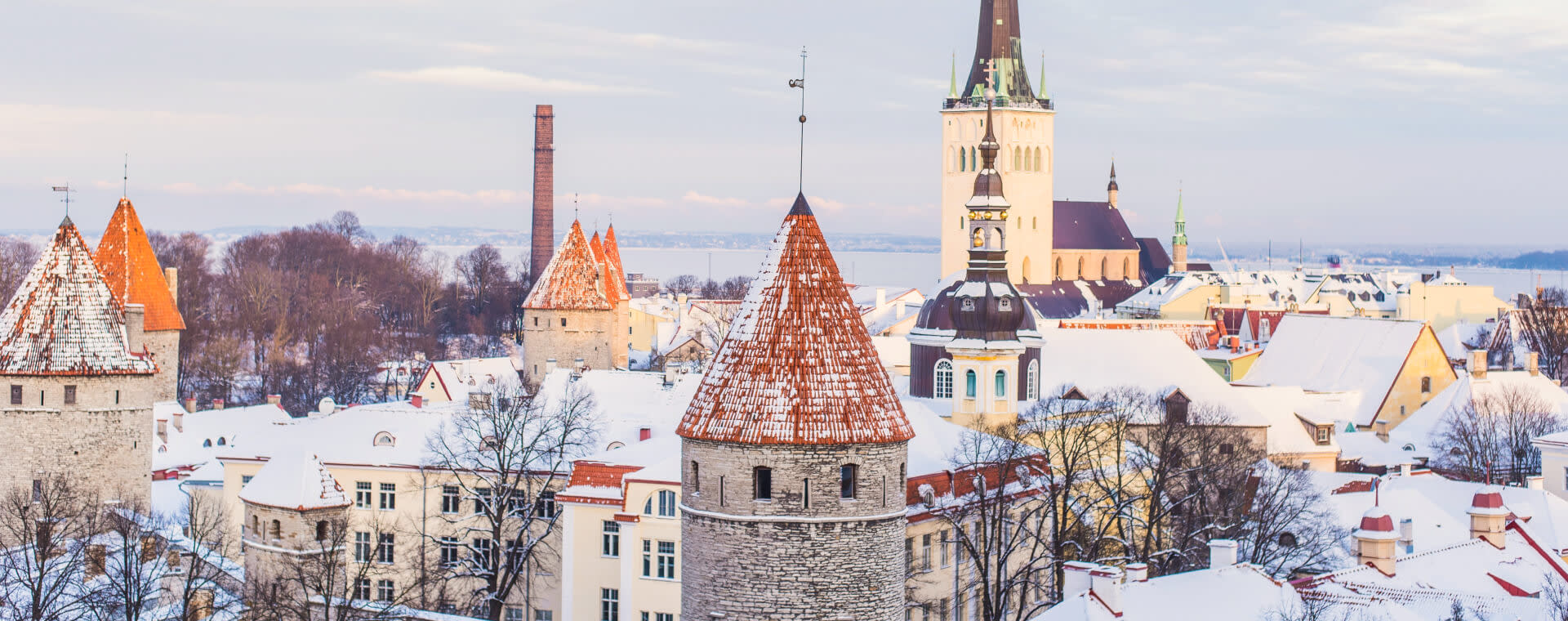
9.Slovenia
Overall index score: 68.68
Slovenia is making great strides in developing a strong culture around life-work balance.
Slovenia offers good statutory leave in return: 33 days of annual leave, 80% of your wage when on sick leave, and 15 weeks of maternity leave on full pay.
While work flexibility is not regulated by law, Slovenia operates via collective agreements at a company level. The result? A majority of full-time workers and employees enjoy the ability to start and end their day according to personal requirements.
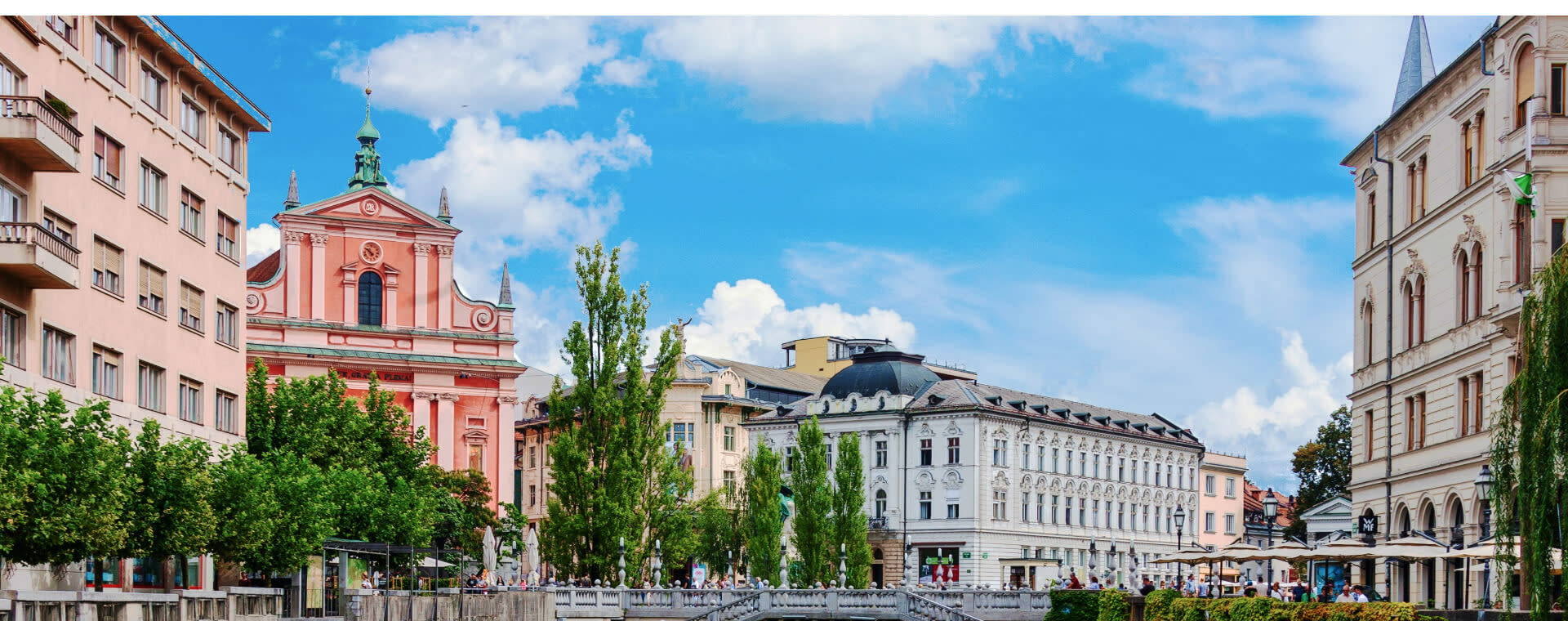
10. Iceland
Overall index score: 66.01
When it comes to statutory annual leave, Iceland is among the best in our top 10, offering a generous 38 days of paid leave. With a happiness index score of 7.56, Iceland is also one of the happiest nations in the world.
The Nordic nation boasts a universal government-funded healthcare system, putting its healthcare system among some of the most proficient on the continent.
Choose to make the switch to Iceland and you’ll experience a strong life-work balance engrained in the nation's culture. Much of Iceland is shut down through July when you can experience the best weather with your friends and family.

Download the Remote Relocation Guide now
Learn how to simplify your planned relocation with this walkthrough guide. We outline the key steps for you and your employer to enable a compliant, efficient, and hassle-free move.
What about the rest of Europe?
See the full data review for the top 30 countries in the data table above.
Finland is the happiest country to work
With a happiness index score of 7.82, Finland is the happiest nation in Europe. In 2021, the Northern European nation was also named the happiest place in the world for the fourth year running (with Denmark second and Switzerland third). The Helsinki Times has attributed the nation's happiness to its beautiful natural landscapes and generally chill way of life. Low crime levels, high standards of living, and a renowned education system are also significant factors.
Estonia offers the most statutory annual leave
Offering a statutory 39 days of paid holiday time (28 days of annual leave and 11 public holidays), Estonia has the highest total number of mandatory annual leave in the top 30 countries in Europe. This tops Iceland and Austria who each offer 38 days of statutory paid annual leave. What about paid maternity leave? Inside our top ten, Estonia once again tops the list alongside Luxembourg and Poland – each provides 20 weeks of paid maternity leave at 100% of base pay. Countries such as the United Kingdom, Finland, and Greece offer a longer period of maternity leave but at a reduced wage.
Luxembourg has the highest minimum wage
By offering a minimum wage of the equivalent of $14.26 (USD) per hour, Luxembourg tops our list regarding basic pay. Employers in Luxembourg must also pay men and women the same pay for equivalent job roles. Fixed-term contracts and part-time employees are also covered by regulations around the conditions of pay. Both types of workers are to be paid at the same level as a full-time employee in an equivalent role (with part-time workers being paid pro rata).
What is life-work balance (and its impact on your personal life)?
Life-work balance is a culture of work that understands the importance of family commitments as well as your own wellbeing. In a country that practices a good life-work balance, your time should be flexible and not dictated by employment. You should have enough time to look after yourself and those close to you, as well as sleeping properly, exercising, and eating a well-balanced diet. By putting life ahead of work, we hope to reframe how the world holds conversations about how we spend our time.
Personal care and family life come first. The pressures of work can often make us oblivious to this fact. A good life-work balance will see you meet deadlines and excel in your role without having to work long hours that negatively impact personal health.
However, many employees still work long hours and enjoy little time of their own. In the United Kingdom (despite ranking in the top 10 of our index), for example, one study suggests the average worker puts in 10.1 hours of overtime per week, 59% of which is unpaid. In total, 61% of people feel they have a poor work-life balance.
Poor work-life balance can result in a host of consequences for physical and emotional health, not to mention one's social life. The ability to combine work with other responsibilities and needs successfully is critical to reap the benefits of remote work in personal life.
Nations and businesses that confirm life-work balance as policy can quickly improve the overall quality of life for employees. As a bonus, people tend to be more engaged with their work and see an increase in productivity. Physical health improves too, with fewer cases of absence and illness.
What changed compared to 2022?
The 2023 update to the European Life-Work Balance Index added new ranking factors to more accurately portray and evaluate the life-work balance quality in each European nation.
Choosing to include data on average working hours and LGBTQ+ inclusivity across the Old Continent has allowed us to better define life-work balance in line with values such as diversity, equity, and inclusion synonymous with the modern workplace.
The addition of new ranking factors had a significant influence on a country's positioning in our European index compared to 2022.
Key position changes
Luxembourg and Spain remain in the one and two spots as the only European nations inside the top 10 to retain their 2022 position.
France enters the top three up from fifth last year, with Denmark jumping into the top five from position 10 in 2022.
From position 28 in 2022, the United Kingdom breaks into the top 10 at position seven as one of the biggest risers in our index alongside Estonia (who also enter the top 10).
Germany falls from the top five down to 12th. Poland and Italy also drop out of the top 10.
The 2023 European Life-Work Balance Index observed large swings across the continent as we continue to see greater trends toward life-work balance across the world. Do you want to see how Europe compares to the rest of the world? Check out our Global Life Work Balance Index for the worldwide rankings.
Here at Remote, we want to champion countries, companies, and organisations that prioritise providing their employees with the best possible life-work balance, so that together, we can all access a fulfilling career. If you’re looking to relocate or explore working in a different country, see how we can help with our employer of record services today.
Remote Relocation
Relocating to another country is incredibly exciting — that is until you get to the nitty gritty details of what it takes to make the move happen. But don’t worry, we've created a program specifically for you and your employees to make the process seamless.
Methodology
Employer of record specialists, Remote, conducted this index data analysis to reveal which European countries offer employees the best life-work balance.
The study came to its conclusions by reviewing the following key indicators:
Statutory annual leave (total days of paid leave, including public holidays)*
Minimum statutory sick pay (percent or wage of flat amount)
Statutory maternity leave (number of weeks paid)*
Statutory maternity leave payment rate (percent of wage)*
Minimum wage (USD per hour)* (Dividing annual minimum wage (US$) rate by 52 weeks and then by the length of the standard hour workweek.) (Correct to the USD conversion rate on the date the data was collected).
Healthcare status
Happiness index (The Global Economy) score (ranked on a scale of 1-10)
Average hours worked per week
LGBTQ+ Inclusivity (Equaldex, 0-100, 100 being highest to reflect the Legal Index scores the legal rights and freedoms LGBTQ+ people have while the Public Opinion Index scores how the general public feels in each region.)
The goal of this study is to represent each country’s life-work balance accurately, reimagining the popular phrase work-life balance to showcase how businesses in each European nation are looking to put life before work.
The metrics were adjusted with index weights to reflect relative importance, providing each country with an overall score out of 100. All data points are ranked from highest to lowest aside from healthcare, which is ranked out of five (with 1 being the best) and average hours worked per week which was ranked lowest best. In the interest of sensitivity, Ukraine and Russia were removed due to the conflict in these areas at this time
(*) When a range was offered the minimum amount was listed.
The data was collected and analysed in March 2023.
